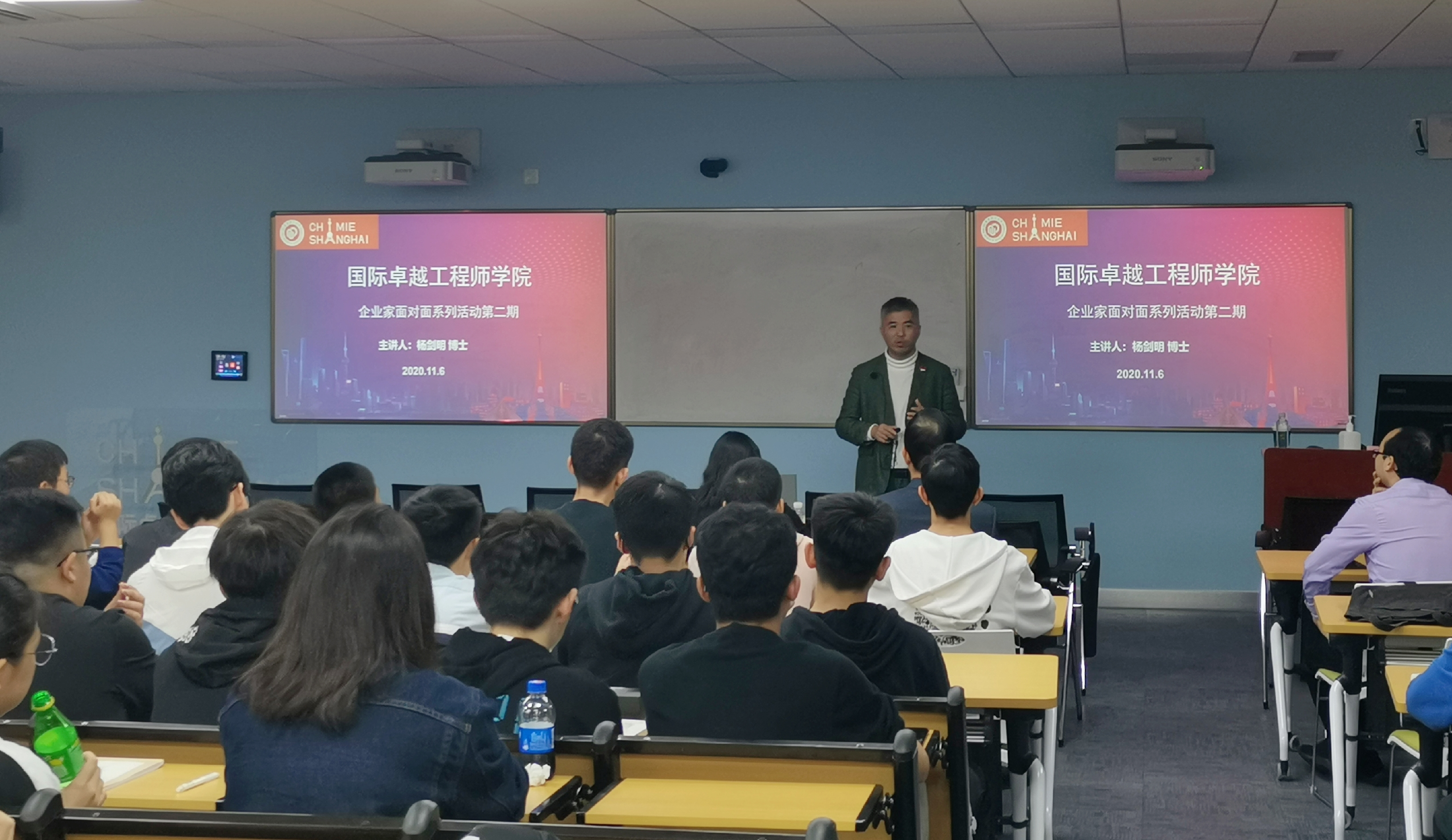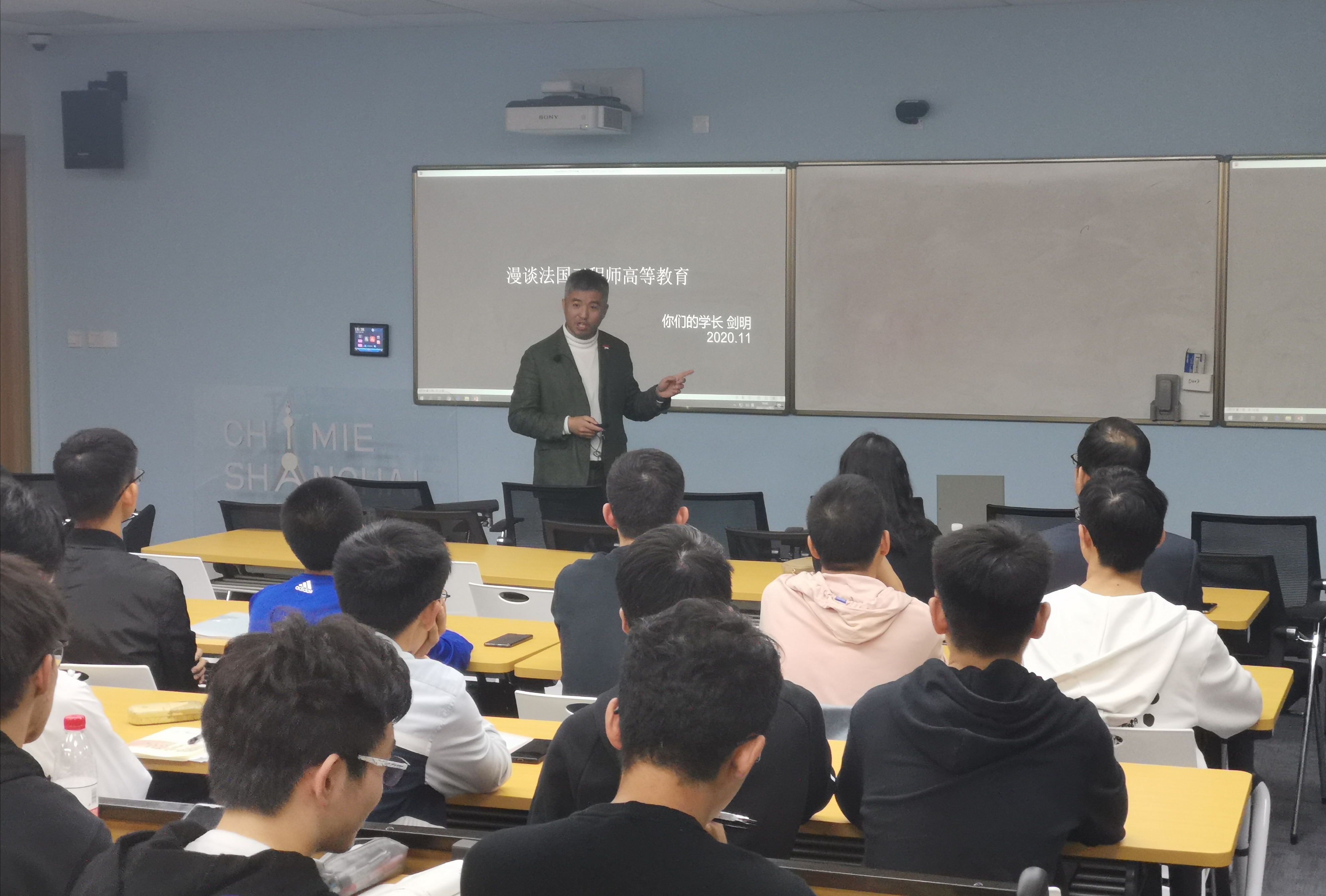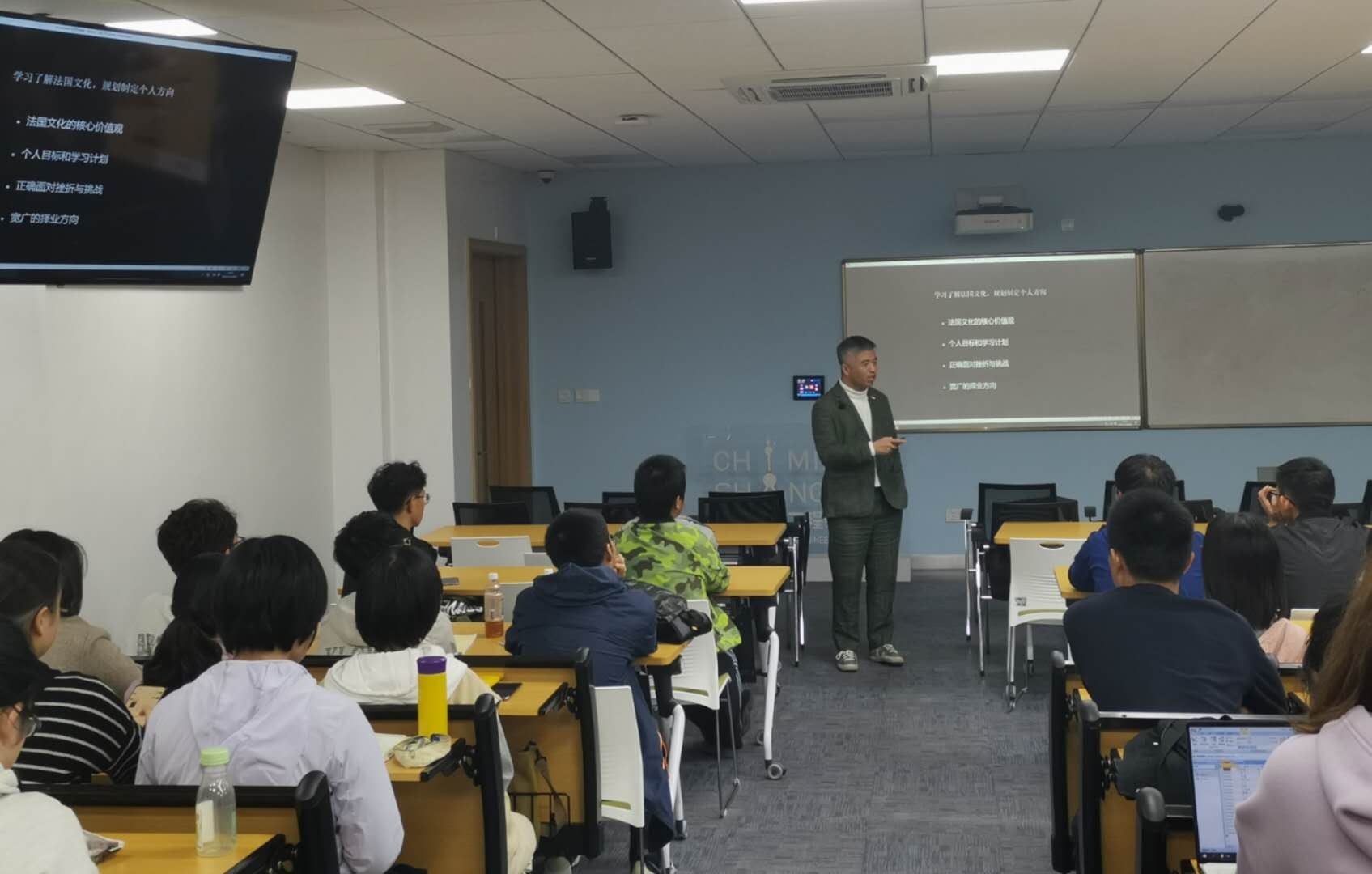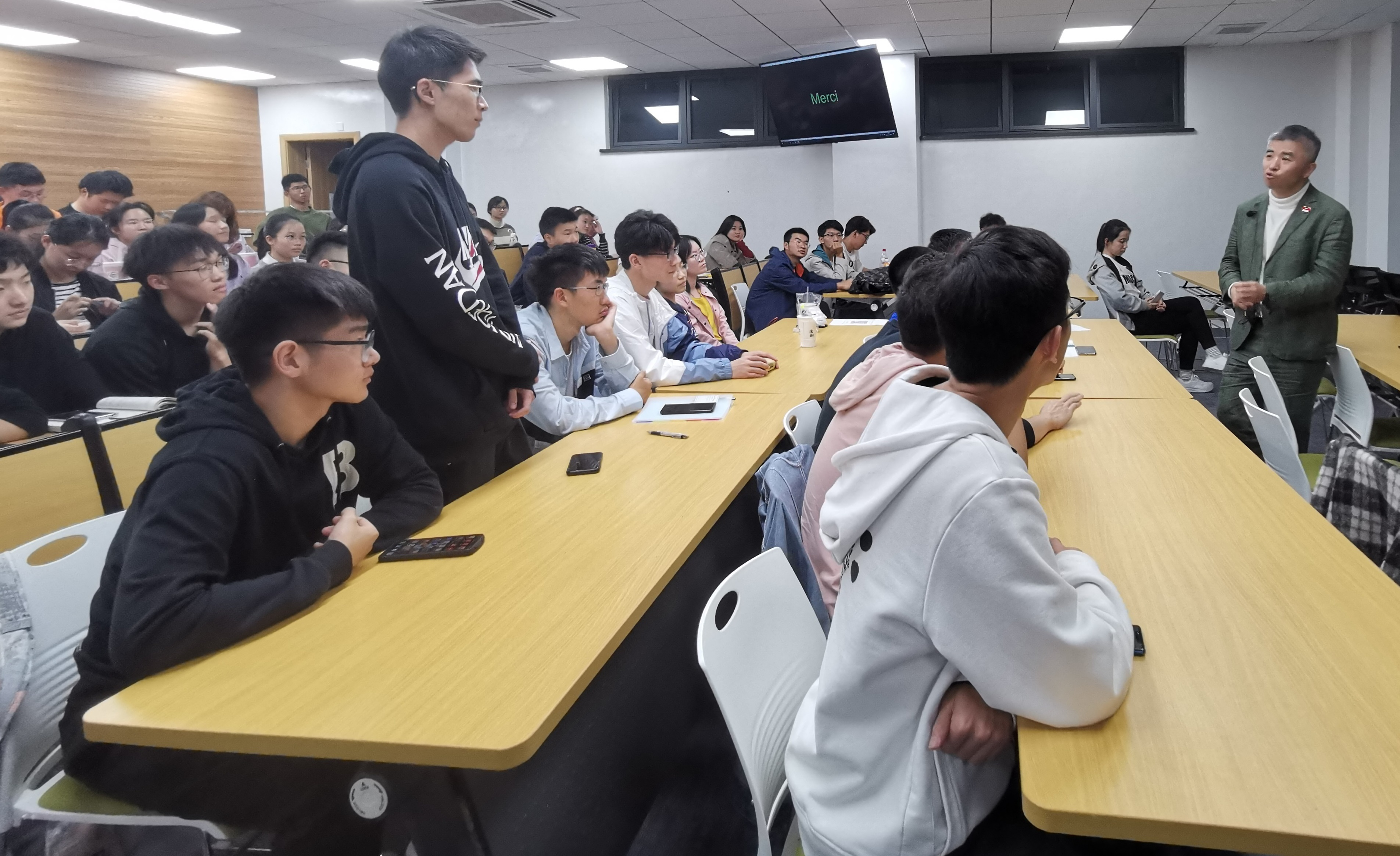On the evening of 6 November, the second instalment of the International Elite Engineering's ‘Professors in Conversation’ lecture series took place in the college's dedicated classroom D403. Chaired by Vice-Dean Huang Guangtuan, the event featured alumnus Dr. Yang Jianming sharing his experiences studying in France while introducing French engineering schools and engineer culture to all students.
Dr. Yang Jianming graduated with an undergraduate degree in Environmental Engineering from East China University of Science and Technology. He subsequently pursued postgraduate studies in France, obtaining a Master's degree in Chemical Safety and Environmental Engineering from the National School of Chemistry of Mulhouse (ESCM) and a PhD in Environmental Chemistry from the University of Haute-Alsace. His professional career has included roles at Solvay Asia-Pacific R&D, Shanghai Disney Imagineering, and UL Asia-Pacific Environmental Division. He concurrently serves as an industry mentor for the Master of Engineering programme at East China University of Science and Technology and currently holds the position of Engineering Research Manager at a globally renowned high-tech enterprise.

Dr. Yang commenced his talk on ‘A Casual Discussion of French Higher Education for Engineers’ by drawing upon his personal experiences to share insights into studying in France with the students. He first encouraged them to research the specialised fields and academic directions of various French engineering schools at an early stage, while also exploring the distinct cultures and historical landscapes of different French regions. By aligning these with their personal interests, students could proactively determine and plan their preferred study location and institution. This is because selecting a region and institution that aligns more closely with one's personal character and preferences facilitates integration into the local cultural atmosphere and living environment. Such alignment not only enhances academic progress but also actively broadens horizons, yielding a comfortable and invaluable life experience.

Subsequently, Dr Yang outlined the educational model and distinctive features of French engineering schools, reminding students that French higher education for engineers places particular emphasis on cultivating a strong foundation in mathematics and physics. When confronting highly challenging problems in chemistry and physics, a solid grasp of mathematical principles forms the bedrock for solving complex issues. Moreover, the autonomous, heuristic, and practice-oriented teaching methods differ significantly from those in domestic higher education. Laboratory sessions at French engineering schools are student-led, centred on independent discovery and problem-based research, forming a process of exploring, refining, and synthesising knowledge points. This demands exceptional independent research capabilities and critical, innovative thinking from students.
Dr Yang also shared several anecdotes from his own experiences studying in France, reminding students that as international scholars, teamwork with French peers and engaging in diverse cross-cultural exchanges are paramount. He expressed his hope that everyone would seize the opportunity during their valuable time abroad to meet and befriend French students, progressing together and forging deep friendships.

At the conclusion of the lecture, Dr Yang emphasised that as students prepare for their forthcoming studies abroad, they must gain a profound understanding of the core values of French culture, establish personal objectives and academic plans, confront setbacks and challenges with resilience, and explore the broad spectrum of career pathways available. He expressed his hope that, through the distinctive French elite engineering education system, students would not only acquire knowledge but also cultivate critical thinking.

During the discussion session following the lecture, in response to students' concerns about the perceived difficulty of studying through French-language instruction, Dr Yang drew upon his own experience to offer practical learning strategies. He advised students facing such challenges to first utilise Chinese or English textbooks to grasp all key concepts, then consolidate their learning and catch up by integrating French specialised terminology. Dr Yang emphasised that time favours those with ambition, urging students to plan their schedules wisely and utilise their time effectively. He encouraged them not to impose limitations upon themselves, but to persevere steadfastly towards achieving their aspirations.


